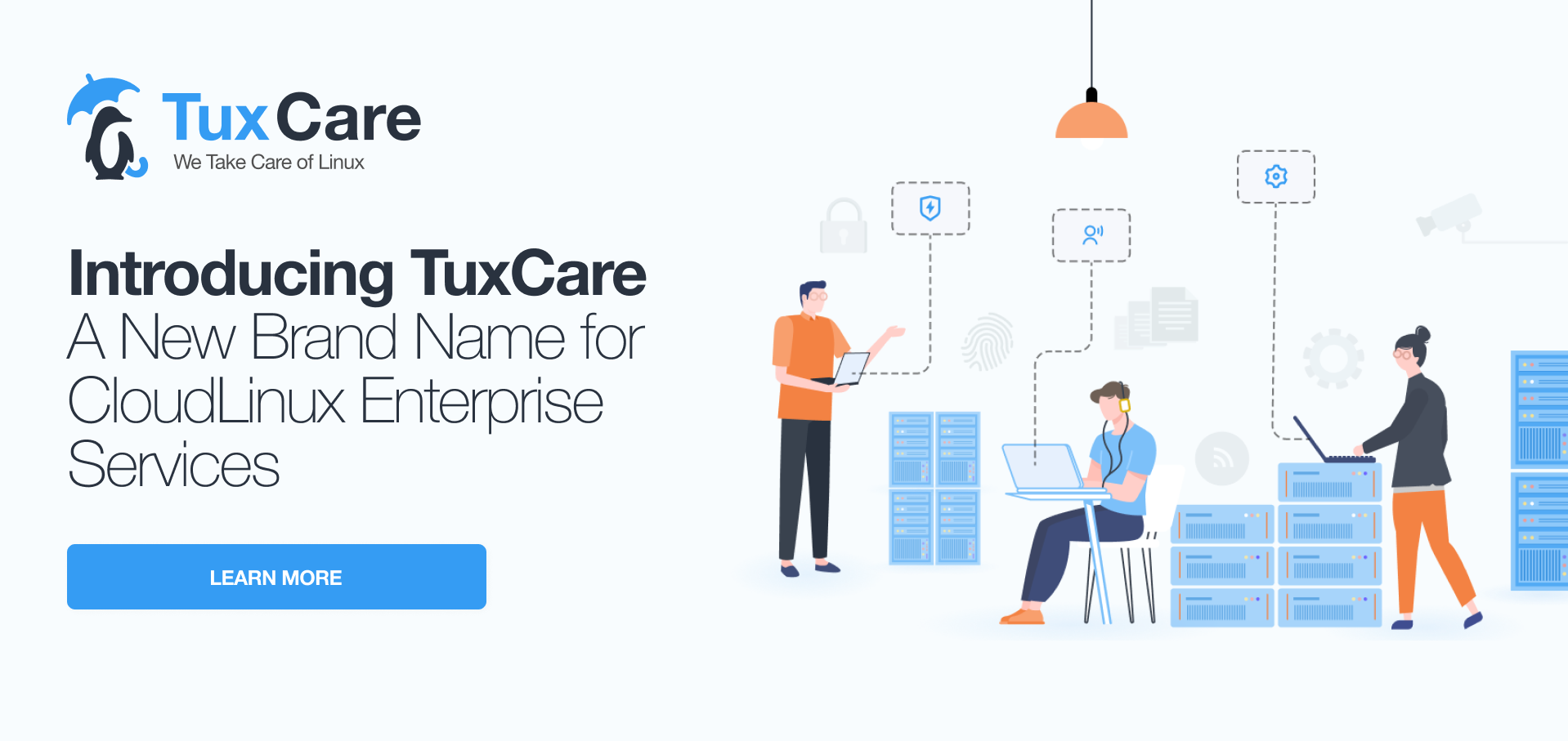TuxCare - our new brand that brings together all Enterprise products
 CloudLinux Enterprise services have been growing steadily for years now. KernelCare, for example, was launched around 6 years ago as a live patching tool for the Linux Kernel. Since then we have added several useful integrations for vulnerability scanners, automation tools and others, and we also released KernelCare+ which adds live patching for OpenSSL and glibc shared libraries.
CloudLinux Enterprise services have been growing steadily for years now. KernelCare, for example, was launched around 6 years ago as a live patching tool for the Linux Kernel. Since then we have added several useful integrations for vulnerability scanners, automation tools and others, and we also released KernelCare+ which adds live patching for OpenSSL and glibc shared libraries.
Last year we also added Extended Lifecycle Support services that let you continue to receive security updates for your systems that are past their original vendor’s End-of-Life date. So if you need more time to migrate to current versions of your distro we can continue to provide patches and updates up to four years past the EOL date.
As we expanded our offerings, it became clear that we needed to provide a broader umbrella brand where prospects and customers could easily review and select the services needed to protect and take care of their Linux infrastructure. To this end, we created TuxCare: the new umbrella brand that encompasses live patching for critical components, support services for systems past their EOL, and now for current distributions as well. By relying on TuxCare, you can rest assured that we will take care of system security updates and vulnerability management, and you have dedicated support in case something goes wrong and you require assistance.
You now have options to move away from vendor-specific extended support packages, which are very expensive and come with a hefty dose of vendor lock in. We support all the major distributions in use in the Enterprise with improved security and ease-of-use.
TuxCare provides a set of services to automate, simplify and enhance enterprise Linux operations. You can reduce the management tasks and patch delay risks with live patching, completely bypassing the need for complex service migration orchestration even when you have high availability in place.
Today TuxCare provides:
- Live Patching services - no more service interruptions because a new CVE came out.
- Extended Lifecycle Support services - You should decide when it’s time to update your systems, not your vendors.
- Linux Support services - Get reasonably-priced patches, updates, and 24/7 incident support for your current version Linux systems.
But TuxCare does not end there. If your business relies on open source database providers like MySQL, MariaDB or PostgreSQL, TuxCare will also provide live patching for them soon. If you use QEMU we will also provide live patching services for this virtualization platform soon.
If you are already using our current products they will continue performing just as before and your current terms will be grandfathered for the remainder of your subscription term. However, as of today KernelCare Base edition becomes a legacy product and going forward KernelCare Enterprise edition is the new foundation for all TuxCare live patching services. As for Imunify360, KernelCare Base functionality will remain in Imunify360 for now, but will evolve to a more hosting-specific live patching technology going forward.
You can learn more about TuxCare here, where you can review and select the best services to take care of your Linux infrastructure.







